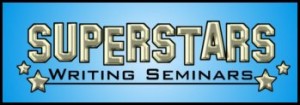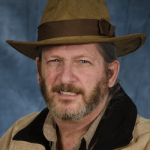My generation was raised to believe in the power of goals. I was taught that goals set at the beginning of an endeavor would allow me to achieve success. In promising myself that I would do a thing, it would happen. Even though I always had the best of intentions, I would often fail to meet my goals anyways.
Eventually, I realized that the problem was that I was only setting goals, not making plans. Goals are objectives, indicators of intent. Plans are action, a path for execution. Without having both, nothing will ever be accomplished. Over the years, I realized that my goals need to be SMART to be effective.
Goals are Specific. Any goal you set has to be specific enough that you can intelligently plan for success. A popular New Year’s resolution is to lose weight and get in shape. But how much weight do you want to lose? How do you define “in shape?” Establish exactly how many pounds you want to lose, or by how many inches you want your waist to shrink. Give yourself a specific BMI number you want to drop below. Establish some task you cannot accomplish now that will be your landmark for “being in shape.”
Goals are Measurable. Though specificity defines the endpoint, measurability ensures that you can accurately and regularly track your progress and take corrective action. The entire thought behind behavioral-based management is that by measuring and changing people’s actions, we can reach objectives. It is important to avoid goals that are succeed/fail in nature. If such objectives must be set, it is important that we can accurately measure progress in time to make a difference in the success of the goal.
Goals are Actionable. As a part of behavioral-based management, SMART goals must be under the influence of the person trying to achieve the goal. For instance, I have absolutely no control over my company’s stock price, so trying to set that goal would be unreasonable for me. However, the CEO of my company might very well have that goal. The difference is that his actions could have a direct effect on the stock price for the company, where mine do not. When considering actionable goals, I ask myself, “Are there steps that I can take that will directly influence the results?”
Goals are Realistic. The whole point of the goal is to make some improvement in your life, so a goal that cannot be attained is functionally useless. This is often the most difficult aspect of a SMART goal, as it requires not only introspection and self-awareness, but knowledge of one’s environment and competition. Honesty is truly important in setting realistic goals. Goals should always be challenging, but they should be attainable or else you have failed before you even started.
Goals are Time bound. Like everything else, goals have an end. Even if you accomplish your goal, if that accomplishment is not well timed, it’ll be either less effective or entirely ineffective. When setting your goal, it is essential to look at what timing you will need to be effective, and build that timing into your goal.
Because I believe in SMART goals, I will go ahead and take a risk. I am going to broadcast my writer’s goals for 2014. I am also going to ask y’all to help me keep accountable. My email address is Nathan[at]NathanBarra[dot]com. Feel free to email me at any time, ask about how my goals are going, tell me about your own goals, or even just chat.
OBJECTIVE: Make progress towards becoming a professional writer.
Though this goal is not SMART, it isn’t really a goal either. It is the overarching objective each of my goals will be designed to support.
GOAL #1 (blogging): Write and publish 52 Monday posts for In Brief, at least 10 Fictorians posts, and have a Thursday’s Thoughts online every Thursday in 2014.
I have found that though blogging takes a lot of my time, it also has many benefits. Writing and editing so frequently has had a positive effect on my prose. I have met many wonderful people through my blogging. I spend more time now thinking about my craft and seeking out resources to improve my skills than I have ever had before. Most importantly, it keeps me writing even when I am so busy that I barely sleep.
My plan for this goal is to try to establish a queue at least one month out, but still treat every week as if my queue is empty.
GOAL #2 (novels): Polish my manuscript to be ready to be shopped to editors and agents by 30-Aug-14.
This goal suffers most and specificity. What is a polished manuscript? Unfortunately, after much thought, I have not found a way to quantify this goal. The most important thing, however, is its timeliness. There are two major industry focused conventions in the fall at which I want to start shopping the book. To do this, the book needs to be finished and ready to be sent out into the world by the above-mentioned date.
The plan is to let the books settle until the end of the month, giving time for my last beta readers to get back to me. Then, I will finish my structural edits by 26-Mar-14, and my line edits by 25-May-14. With that timeframe, I can find a proofreader or line editor, and finish the manuscript reasonably by 09-Aug-14. This might seem like a long stretch of time, but I work on-call. That means, I might work more than 120 hours a calendar week, for 10 days, and then have 5 days off to rest and recuperate. For me, with the blogging, this schedule will be challenging. But, where’s the fun in easy?
GOAL #3 (submitting): Submit at least 4 independent works to publication markets by 31-Dec-14.
The only way for me to become a professional author is to get over my fear of rejection and learn to let go of a completed work. Blogging has helped a great deal with that. Now, I need to start asking for people to pay me for my efforts. Note, that because of how this goal is worded, submitting my novel to any number of sources only counts once.
My plan is to submit twice (Q3 2014 & Q1 2015) to Writers of the Future, shop my book and submit a piece of flash fiction or a short story to a magazine or anthology.
GOAL #4 (professional networking): Attend at least 3 conferences with some sort of writing/writing business aspect by 31-Dec-14.
This goal wasn’t one that I would’ve considered in 2013. Back then, I didn’t realize how important it was both professionally, and personally, for me to get out and meet people in the industry. Not only are they business contacts, but they are my friends and support structure.
The plan is to attend Superstars Writing Seminar in February, the Rocky Mountain Fiction Writer’s conference in September, and World Fantasy Con in November.
My goals have been stated and written down, and so I am accountable for their success. But, I also have a plan, a SMART plan. The only thing to do now is follow my plan and succeed.
 Superstars Writing Seminar will be held February 6–8 in Colorado Springs, CO. It is the premier seminar on the business of writing, period. I attended the first seminar, held in 2010 in Pasadena, CA, and I’m eagerly anticipating attending again this year.
Superstars Writing Seminar will be held February 6–8 in Colorado Springs, CO. It is the premier seminar on the business of writing, period. I attended the first seminar, held in 2010 in Pasadena, CA, and I’m eagerly anticipating attending again this year.
